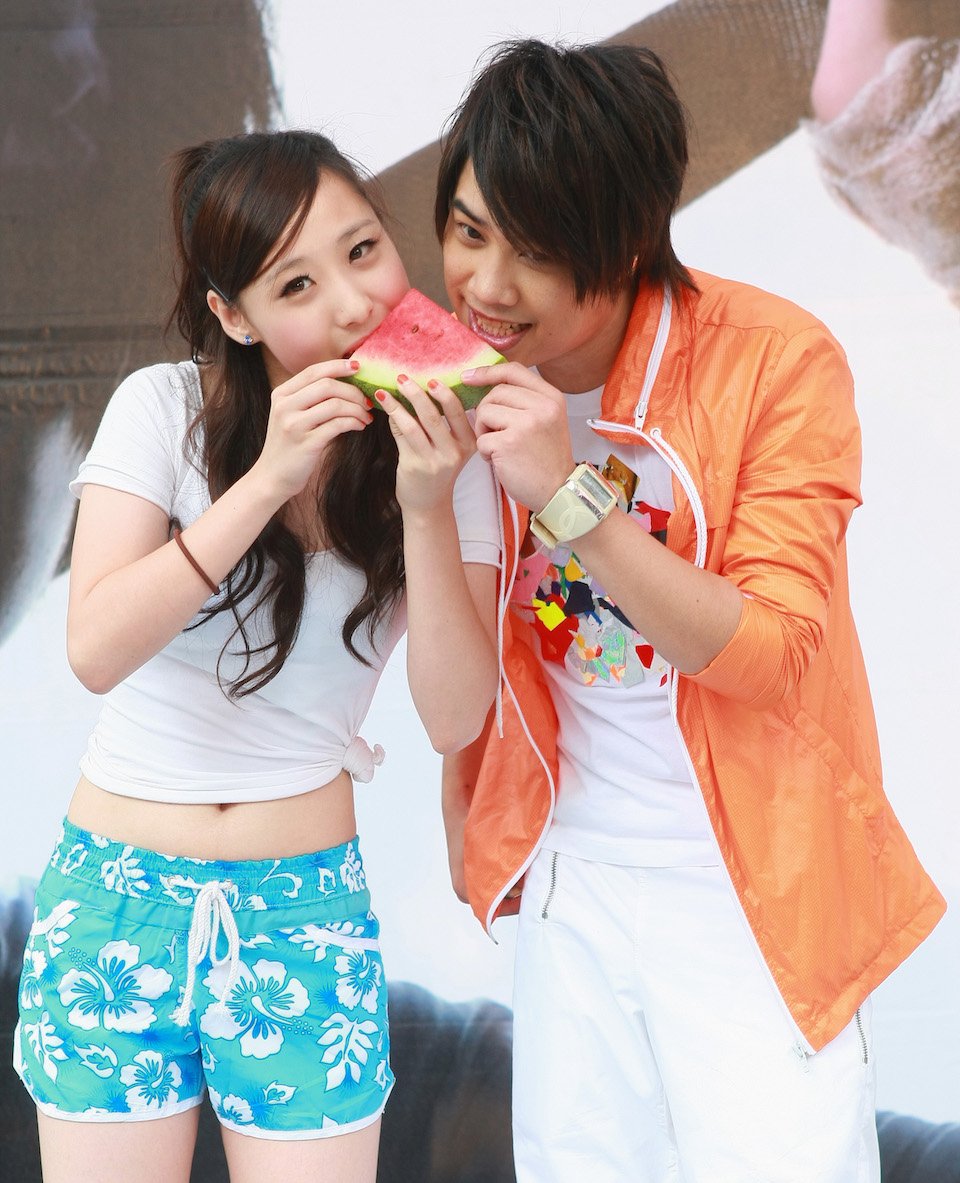Why is juicy gossip known as a "melon" in Chinese?
From dusk till dawn, countless wage slaves (打工人 dǎgōngrén) devote themselves to the daily grind, a routine of working, gaming, and online shopping. The past two weeks, however, saw a slight shake-up: They were glued to Weibo, the Chinese version of Twitter, waiting for the sequel of Kris Wu's sex scandal.
Kris Wu, a Chinese Canadian rapper and actor who boasts around 50 million fans on Weibo, has been detained by Beijing police on charges of rape, pending investigation. On July 18, 19-year-old influencer Du Meizhu publicly accused him of date-raping her and of predatory sexual behavior, seeking out and grooming young girls (some underage) on the excuse of auditioning them for music videos, then engaging in sexual relationships with them.
As netizens swallowed the various posts, evidence, and text records Du offered up as evidence (alongside gossipy details on Wu's sexual competence), Wu released a statement denying all allegations, but more women posted chat records of the idol's predatory behavior. As the drama continued to unfold, Wu's name trended on Weibo nearly every day for the entirety of July, netizens exclaimed "最近简直是吴(无)心工作! (Zuìjìn jiǎnzhí shì wúxīn gōngzuò! I can pay no attention to work!)" as they were too busy following the scandal (the surname "Wu" and "no" are pronounced the same way in Chinese). At this point, a seemingly irrelevant item also did the rounds of Weibo, of a watermelon exploding on a supermarket shelf in Shenyang, Liaoning province, due to the heat. Netizens quipped "别吃瓜了,瓜都吐了 (Bié chīguā le, guā dōu tù le, Stop gossiping, even the melon threw up)"—a pun on the term 瓜 (guā, melon), the Chinese word for gossip.
Why is a salacious piece of scandal compared to a juicy fruit in Chinese? The term 吃瓜 (onlooker, rubbernecking) refers to people who gawp and gossip about matters that don't affect them, and seems to have originated in 2016. The terms "eat melon seeds in the front row (前排吃瓜子 qiánpái chī guāzǐ)," or "sell melon seeds in the front row (前排兜售瓜子 qiánpái dōushòu guāzǐ)" appeared in online forums around that time. Later, "melon-eating masses (吃瓜群众 chīguā qúnzhòng)" developed for describing netizens who "don't speak but just watch (不发言只围观 bù fāyán zhǐ wéiguān)" public sphere events, becoming one of entertainment magazine Yaowen Jiaozi's top 10 buzzwords of 2016. There is also a longer version of the buzzword, "melon-eating masses who do not know the truth (不明真相的吃瓜群众 bùmíng zhēnxiàng de chīguā qúnzhòng)."
It's not known where the association between melon-eating (or melon seed-eating) and apathetic ogling comes from. One urban legend has it that after a traffic accident, an elderly bystander interviewed by TV reporters said: "I don't know anything. I was eating a watermelon at the time (当时我在吃西瓜,什么也不知道 Dāngshí wǒ zài chī xīguā, shénme yě bù zhīdào)." It's similar to the story about the origin for “buying soy sauce (打酱油 dǎ jiàngyóu),” a slang term for shirking. Another unproven explanation dates the saying back to the Book of Rites (《礼记》) from the fifth to third century BCE, the book describing how different classes of people enjoy melons: While people of higher social status could enjoy the peeled melon covered with cambric cloth, the ordinary masses had to peel off the skin and eat it along with the rind—thus they don't know the actual appearance of the melon inside.
In his short story “Hometown (《故乡》,” Chinese writer Lu Xun (鲁迅) described a cha (猹, a fictional wild badger-like animal) who wants to steal a watermelon in a field. The story is well known, thanks to one chapter being required reading in Chinese middle schools, netizens referring to themselves mockingly as cha when they get their daily dose of celebrity scandal: "I am a little cha in the endless watermelon field (我是广袤瓜田里的一只小猹 Wǒ shì guǎngmào guātián lǐ de yì zhī xiǎo chá)"; or, "There are so many watermelons. I am like a cha jumping around in the melon field, not knowing where to start (瓜太多,我像个在瓜田里上窜下跳的猹,一时间竟不知从何吃起 Guā tài duō, wǒ xiàng gè zài guātián lǐ shàngcuàn-xiàtiào de chá, yìshíjiān jìng bù zhī cóng hé chīqǐ)."
But the intensity of the Kris Wu scandal challenged even the most seasoned of melon-eaters. Besides Wu himself, police have detained a fraudster surnamed Liu who admitted trying to scam money from both Wu and Du by piggy-backing off the incident, and revealed a ghostwriter had helped Du make her story public. To describe their feelings about these twists and turns, netizens converted the Chinese proverb "One wave has not yet settled, before another has risen (一波未平,一波又起 yì bō wèi píng, yì bō yòu qǐ)" into "One melon has not been digested, before another has come (一瓜未平,一瓜又起 yì guā wèi píng, yì guā yòu qǐ)." With Wu's arrest, netizens are now waiting for melons on the final verdict, the future of Du and other alleged victims, and the potential regulations to restrict the behavior of celebrities.
Generally, though, melon-eaters want a satisfying end to their sweet snack: the bad people being punished, the good people protected. When that happens, they happily digest the juices of drama...until the next melon drops.













